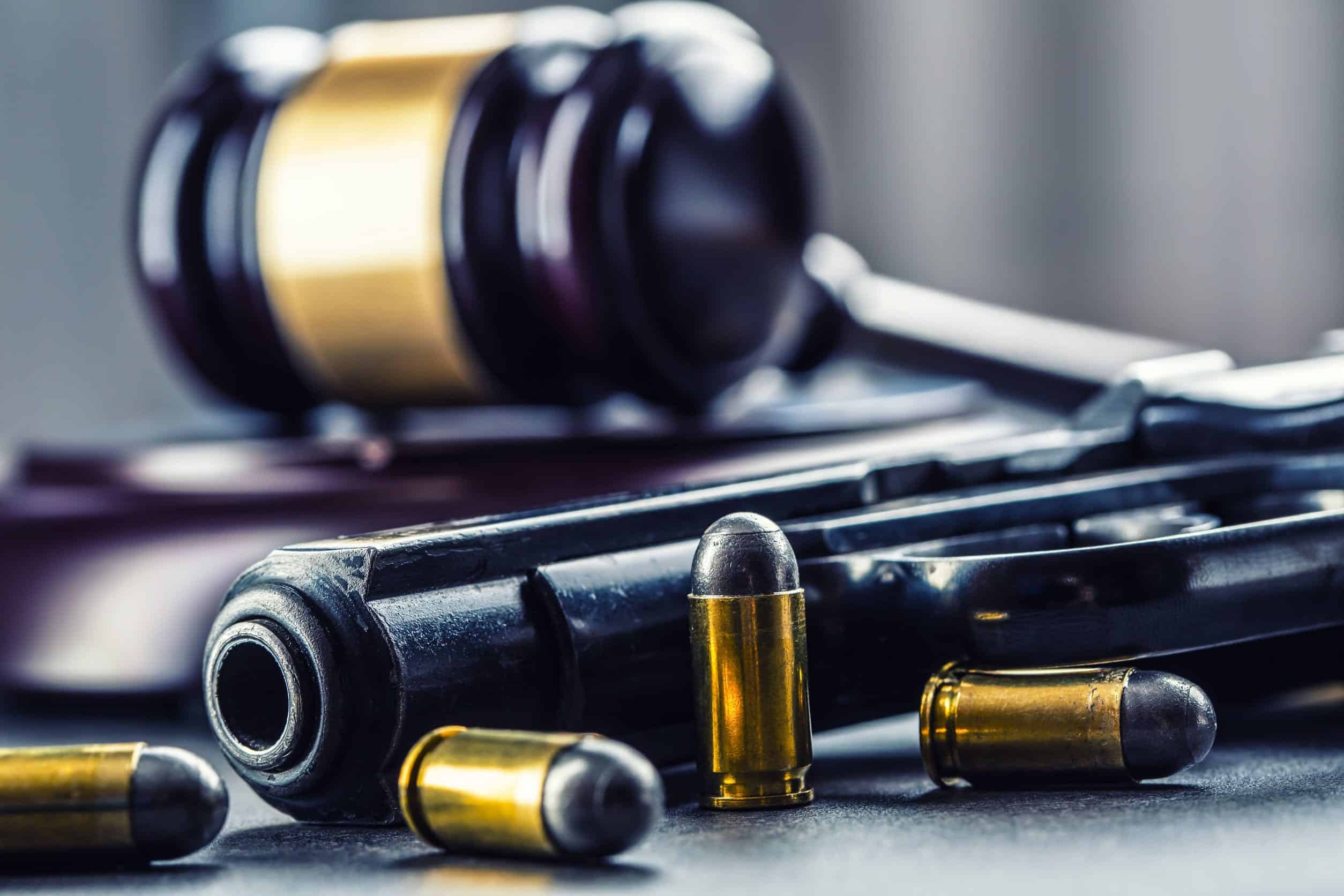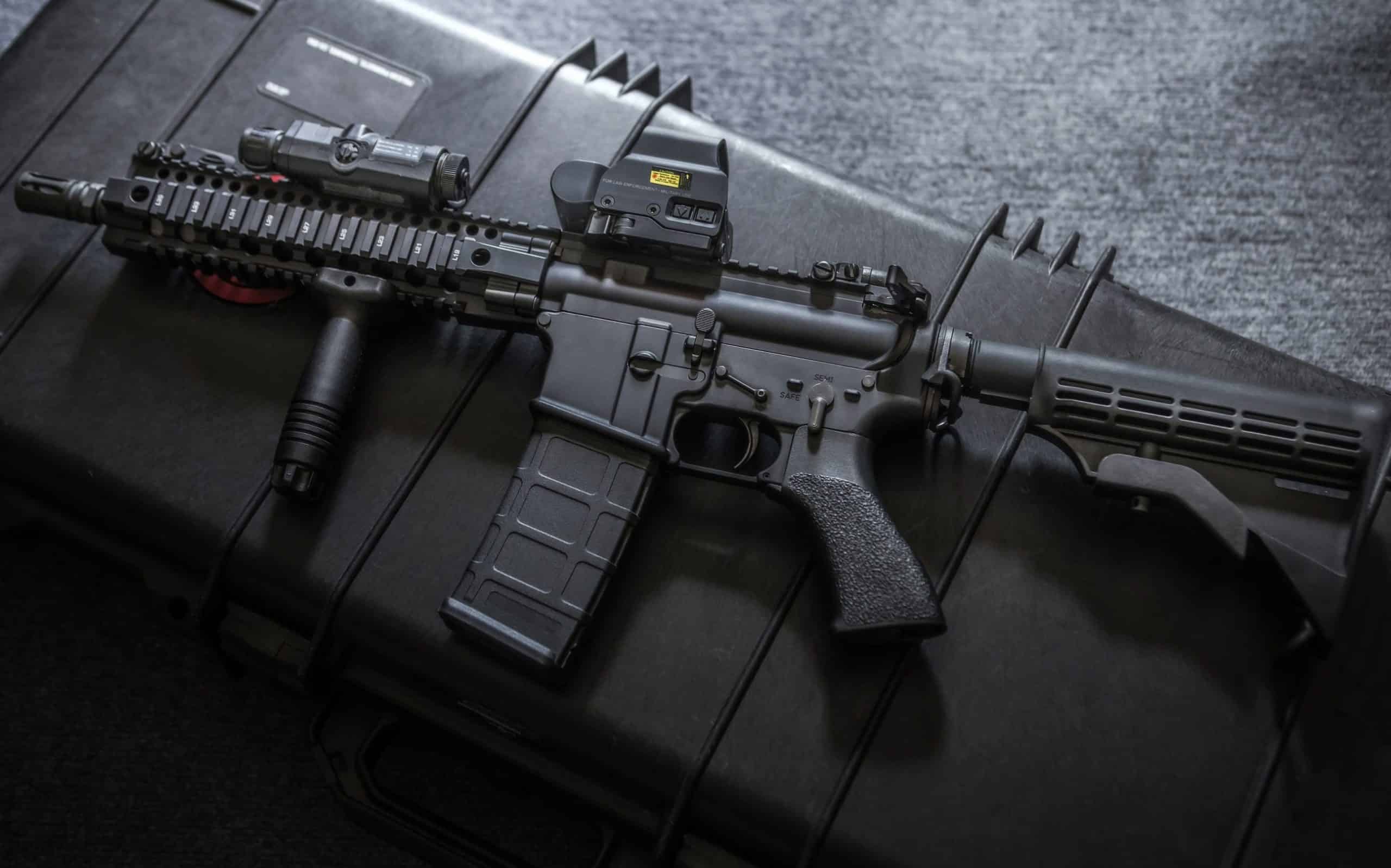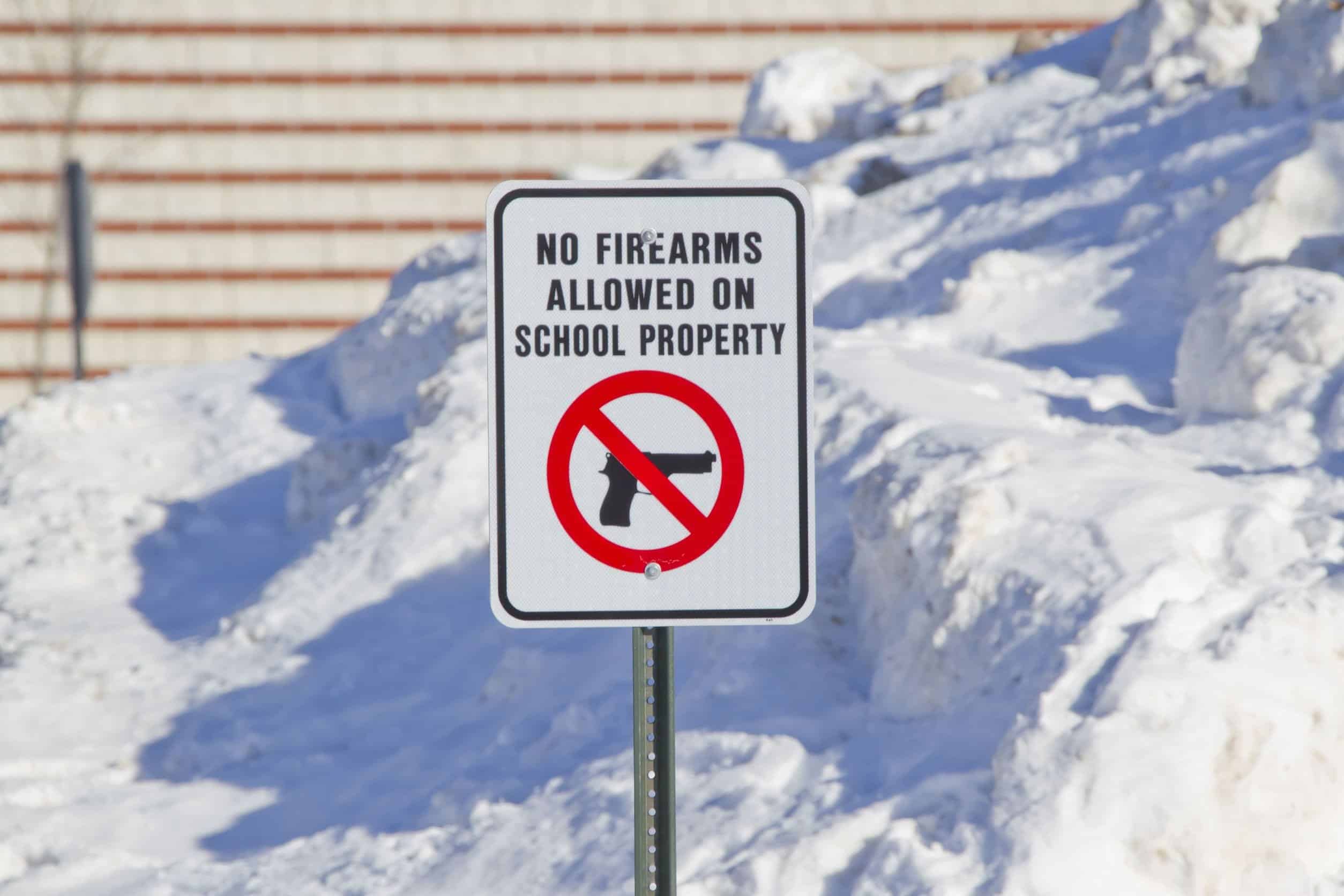- Home
- THE FIRM+
- Criminal Defense+
- CASE RESULTS
- AREAS WE SERVE+
- FAQ’s
- Blog
- Contact
AZHARI LLC BLOG
Nov. 8 2018
Illinois Weapons Laws: An Overview

Posted By: Sami Azhari
Category:
Illinois gun control laws are less restrictive than many other states, but weapons crimes here are strictly prosecuted, with significant criminal penalties and restrictions on the future possession of firearms.
Because of this, if you own firearms or are otherwise a gun enthusiast, it is imperative to be aware of the laws surrounding gun ownership and possession in Illinois to avoid accidentally committing a weapons crime.
Below, we are going to provide an overview of Illinois weapons laws to help you stay on the right side of the law and retain your rights.
Requirements for Firearm Purchase and Ownership in Illinois
Illinois state law imposes the following requirements for firearm purchase and ownership:
- Licensing: All individuals who do not have concealed handgun permits must obtain a 10-year license (a Firearm Owner’s Identification, or FOID card) to purchase or possess firearms and ammunition. To obtain a FOID card, prospective licensees must pass a detailed background check.
- Waiting periods: A 72-hour waiting period is required between the purchase of a firearm and actual transfer to the new owner.
- Design safety standards: Illinois imposes design safety standards on handguns and has granted authority to the state attorney general to adopt detailed standards for handguns.
- Child access prevention law: Firearms must not be left unlocked and accessible to a minor child under the age of 14.
- Lost or stolen firearms: If firearms are lost or stolen, owners must report this to local law enforcement.
Restrictions Illinois Does Not Impose
There are a number of restrictions that are common in other states that Illinois does not impose on firearms owners or dealers. These include:
- Firearms dealers: Dealers need to obtain a license from the Illinois state government, but they are not otherwise regulated at the state level.
- Firearm registration: Firearms owners are not required to register their firearms with state and local governments.
- Gun types: Illinois does not prohibit the transfer or possession of assault weapons, 50 caliber rifles, or large capacity ammunition magazines.
- Multiple firearms: There are no restrictions on the purchase or transfer of more than one firearm at once.
- Regulation by local jurisdictions: In general, Illinois does not allow firearm regulation by local jurisdictions, although there are some limited exceptions.
- Denial of concealed weapons permits: Local law enforcement does not have broad discretion to deny concealed weapons permits.
Sale of Firearms in Illinois
Illinois imposes the following restrictions on the sale and transfer of firearms:
- Background checks: Federally licensed firearms dealers (but not private sellers) are required to run a background check on prospective firearms buyers. This includes a search of criminal records, FBI, and National Instant Criminal Background Check System (NICS) databases. The dealer must also report the name and address of anyone who attempts to purchase a firearm but is disqualified from doing so to state police.
- Mental health reporting: Federal law prohibits firearm possession by anyone who has been adjudicated as being mentally defective or who has been committed involuntarily to a mental health facility. However, no federal law requires states to report these individuals to the NICS database. In Illinois, court systems and mental health providers must report these events to the State Department of Police, which then adds this information to the NICS database.
- Record retention: Illinois requires all sellers of firearms to retain firearm sales records for a minimum of 10 years.
How Illinois Handles Firearms in Public Places
In an effort to protect public safety, Illinois imposes the following restrictions on possession of firearms in public places:
- Concealed carry: Individuals with a valid concealed carry license may carry a concealed handgun in public. Illinois is a “shall issue” state, meaning that a concealed carry license must be issued so long as the applicant is over 21, does not have a criminal record, and has completed firearms training.
- Open carry: Illinois does not permit open carry of firearms within city limits, except on the person’s own property.
- Vehicles: Illinois prohibits possession of a firearm in a vehicle. To transport firearms, the firearm must be in a locked box such that it is not immediately accessible, and it needs to be unloaded. The person in possession should also have their permit card.
- Schools: Possession of a firearm on school grounds is prohibited, even with a concealed carry permit.
- Other restricted locations: Firearm possession is also prohibited in public parks, courthouses, public transit, or within 1,000 feet of these facilities. However, a licensee may carry a firearm in his or her vehicle on these premises so long as it is out of public view, in a locked box, and unloaded.
As you can see, Illinois is very specific about firearm possession. If you own or use guns in Illinois, particularly in Chicago, it is important to be aware of and fully understand the gun restriction laws in Illinois.
Consult Our Defense Attorneys
Navigating Illinois gun control laws can be complex and challenging, especially with the strict penalties and restrictions on future firearm possession for violations. Whether you’re a new gun owner or a seasoned firearms enthusiast, it’s essential to fully understand and comply with all state regulations.
If you find yourself facing allegations of a weapons violation, securing experienced legal representation is crucial. Contact us today to ensure that your firearm practices are in full compliance with Illinois law and to effectively address any legal issues you may encounter.
About the Author
Sami Azhari has been working as a lawyer since 2007, after receiving his Juris Doctor from the Michigan State University College of Law. He has handled numerous state and federal cases, and is known throughout the Chicago and Rolling Meadows area for providing his clients with high-quality, skilled representation. He has been recognized by SuperLawyers, the National Trial Lawyers Association, and other notable organizations, and has spoken at a number of legal conferences.



























































